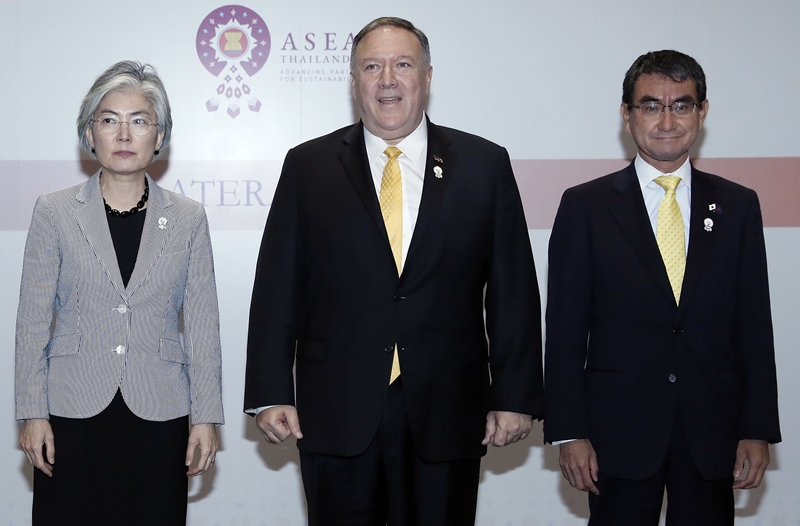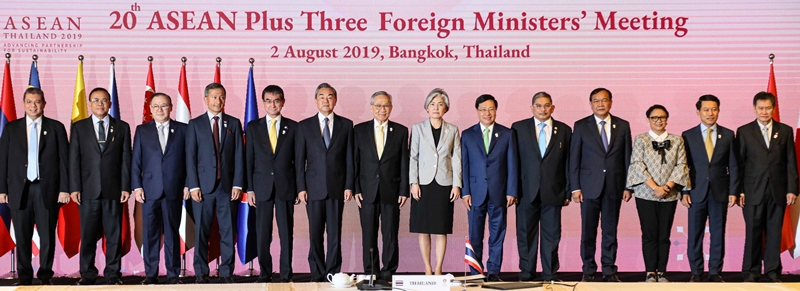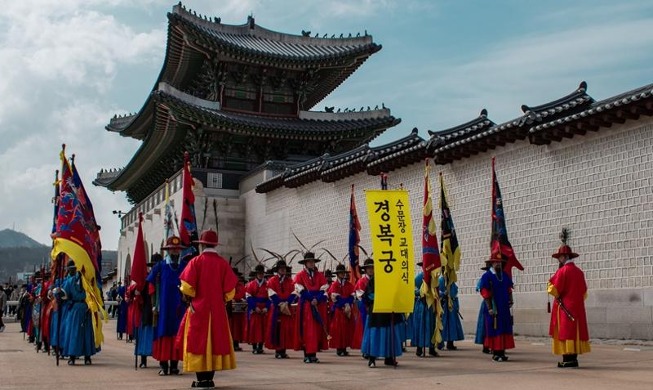-
 Korea.net's 24-hour YouTube channel
Korea.net's 24-hour YouTube channel- NEWS FOCUS
- ABOUT KOREA
- EVENTS
- RESOURCES
- GOVERNMENT
- ABOUT US

(From left) Foreign ministers from Korea, the U.S. and Japan pose for photos on Aug. 2 after holding tripartite talks in Bangkok. (Yonhap News)
By Kim Eun-young and Yoon Sojung
A three-way foreign ministers' meeting among Korea, the U.S., and Japan on Aug. 2 finished with no outcome in Bangkok on the same day Tokyo announced its removal of Korea from a whitelist of countries with minimal trade restrictions.
The meeting took place on the sidelines of the ASEAN Regional Forum, where Korea and Japan failed to narrow the gap in their trade row. Foreign Minister Kang Kyung-wha told a news briefing after the talks, "I urged Japan to immediately reverse its decision and proposed dialogue to resolve the issue."
"I also said the U.S. is deeply concerned about the ongoing situation and pledged to play any role it can and conduct efforts as much as possible."

Foreign Minister Kang Kyung-wha (fifth from right) on Aug. 2 poses for a group photo with participants at the ASEAN+3 Foreign Ministers’ Meeting in Bangkok. (Ministry of Foreign Affairs)
At the ASEAN+3 Foreign Ministers’ Meeting earlier that day, Kang called Japan's decision to delist Korea a "very unilateral and arbitrary action."
She said, "I totally empathize with ASEAN foreign ministers' concerns over the worsening conflict between key trading partners."
Her Japanese counterpart Taro Kono responded that he could not understand why Korea is worried since it also holds a preferential trade status equal to those of other ASEAN member countries.
Watching the conversation between Kang and Kono, foreign ministers from Singapore and China publicly criticized Japan’s decision.
Saying no ASEAN member country is on Japan's whitelist, Singaporean Foreign Minister Vivian Balakrishnan said, "Japan should increase its number of whitelist countries, not reduce it."
He also said raising interdependence through boosting trust among countries is needed to pursue co-prosperity in the region,
Expressing deep empathy with his Singaporean counterpart, Chinese Foreign Minister Wang Yi also said, "The issue must be resolved through trust and goodwill."
eykim86@korea.kr













